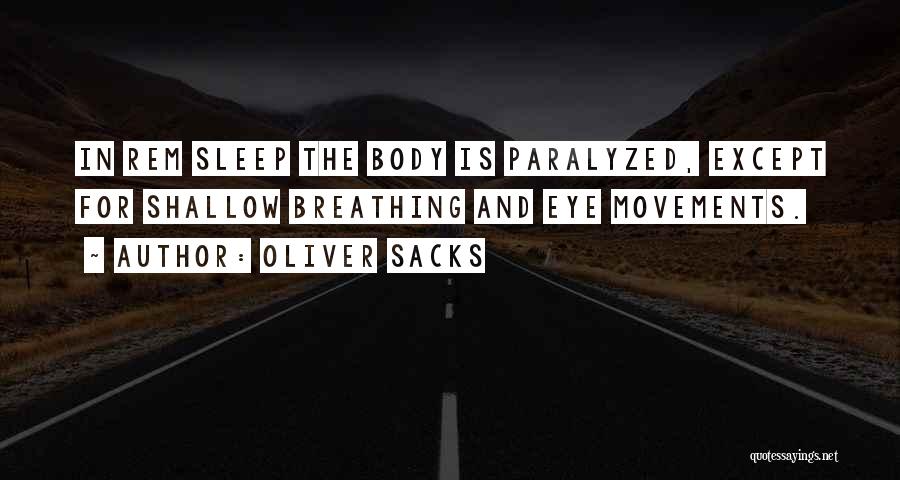Rem Sleep Quotes & Sayings
Enjoy reading and share 22 famous quotes about Rem Sleep with everyone.
Top Rem Sleep Quotes
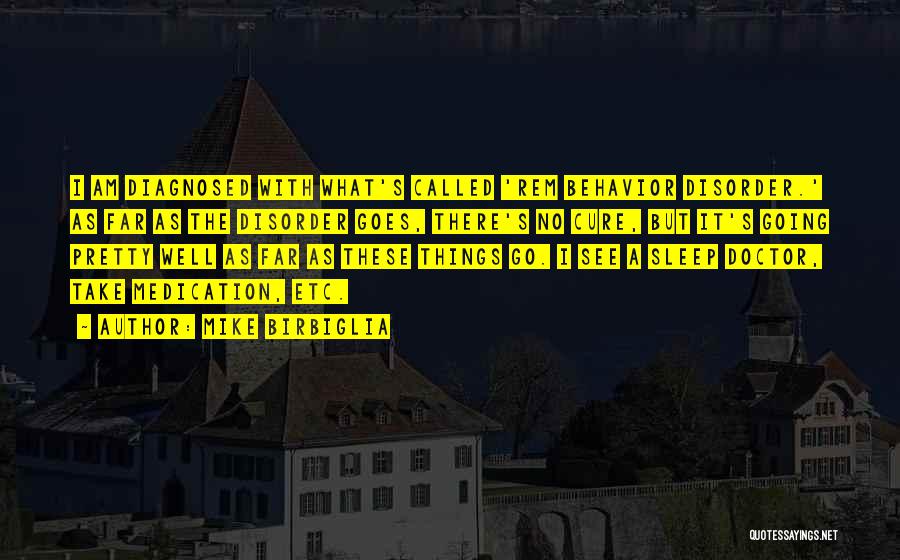
I am diagnosed with what's called 'REM behavior disorder.' As far as the disorder goes, there's no cure, but it's going pretty well as far as these things go. I see a sleep doctor, take medication, etc. — Mike Birbiglia
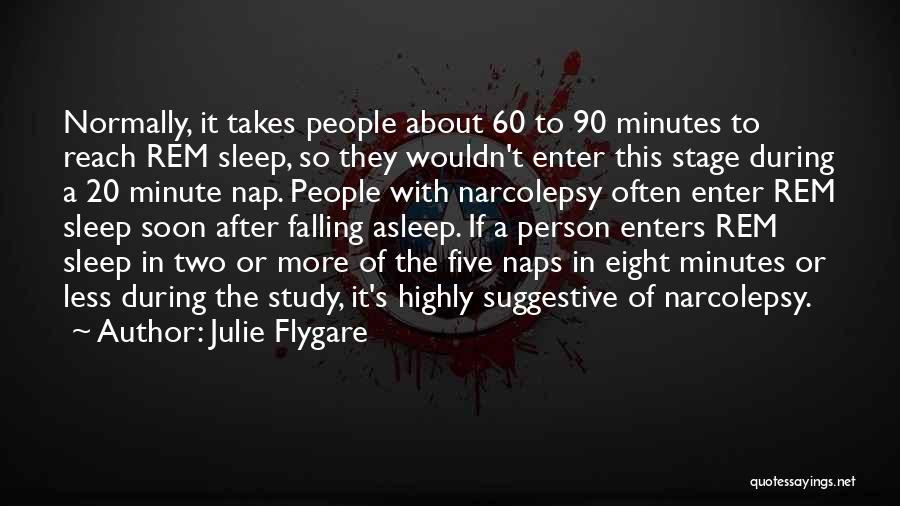
Normally, it takes people about 60 to 90 minutes to reach REM sleep, so they wouldn't enter this stage during a 20 minute nap. People with narcolepsy often enter REM sleep soon after falling asleep. If a person enters REM sleep in two or more of the five naps in eight minutes or less during the study, it's highly suggestive of narcolepsy. — Julie Flygare
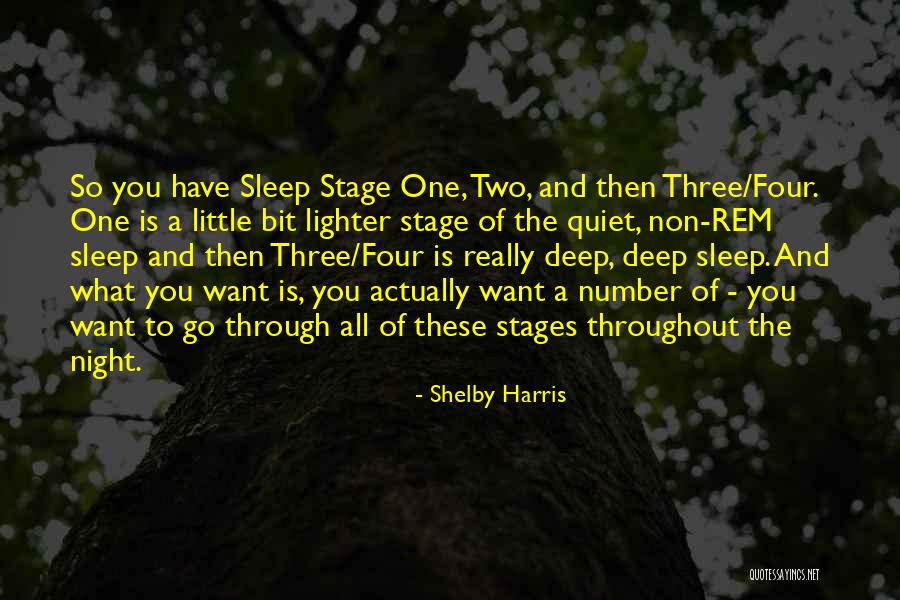
So you have Sleep Stage One, Two, and then Three/Four. One is a little bit lighter stage of the quiet, non-REM sleep and then Three/Four is really deep, deep sleep. And what you want is, you actually want a number of - you want to go through all of these stages throughout the night. — Shelby Harris
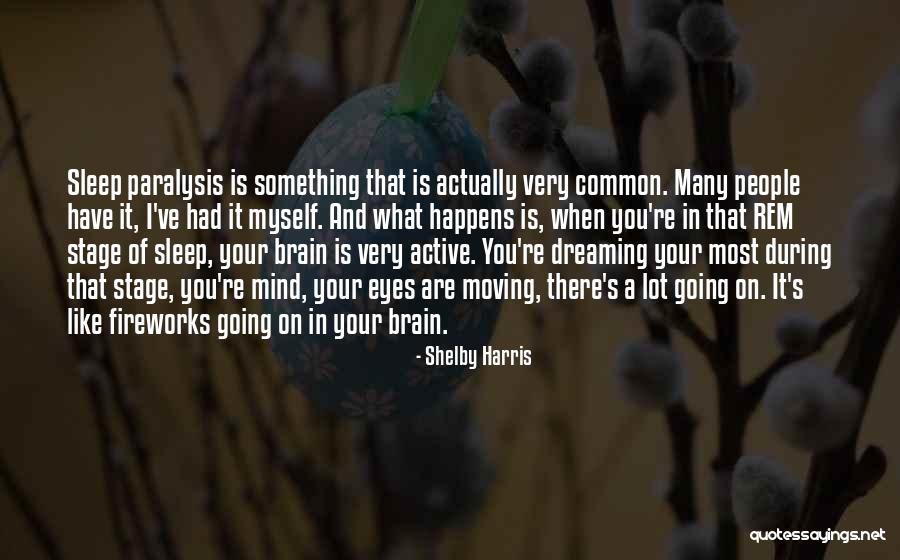
Sleep paralysis is something that is actually very common. Many people have it, I've had it myself. And what happens is, when you're in that REM stage of sleep, your brain is very active. You're dreaming your most during that stage, you're mind, your eyes are moving, there's a lot going on. It's like fireworks going on in your brain. — Shelby Harris
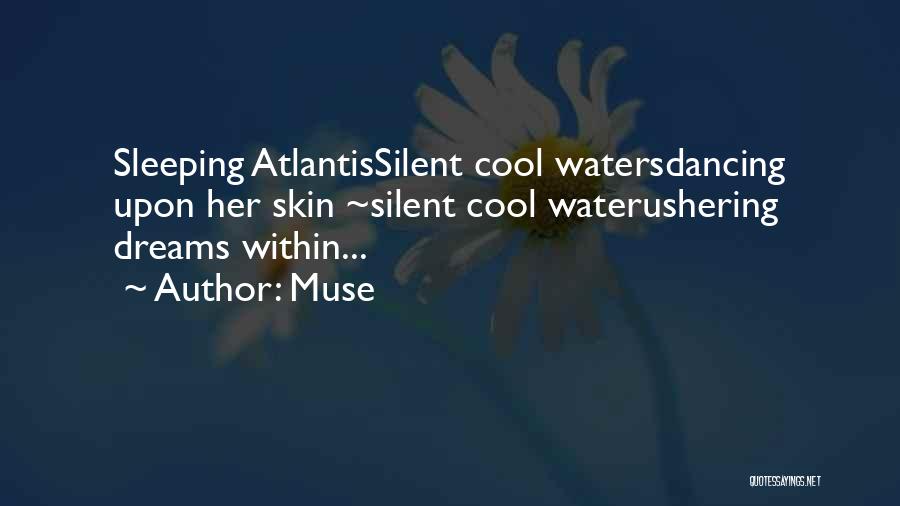
Sleeping Atlantis
Silent cool waters
dancing upon her skin ~
silent cool water
ushering dreams within... — Muse
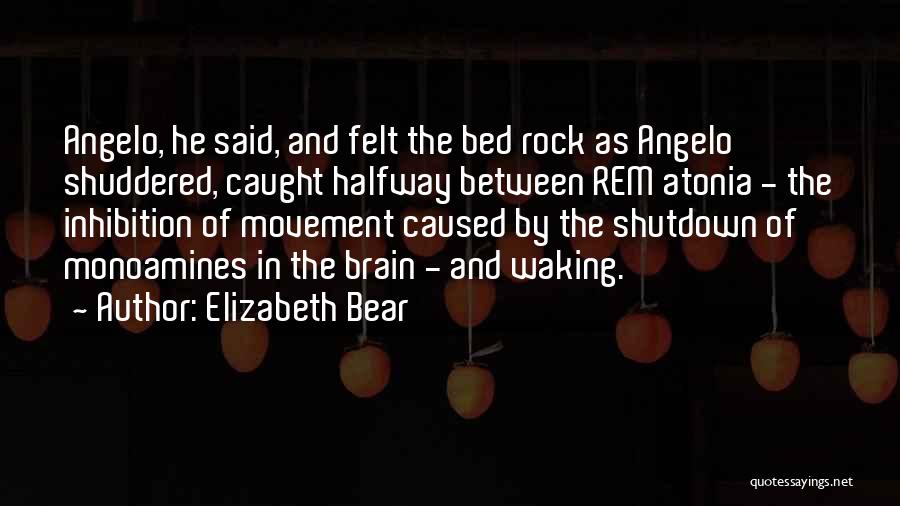
Angelo, he said, and felt the bed rock as Angelo shuddered, caught halfway between REM atonia - the inhibition of movement caused by the shutdown of monoamines in the brain - and waking. — Elizabeth Bear
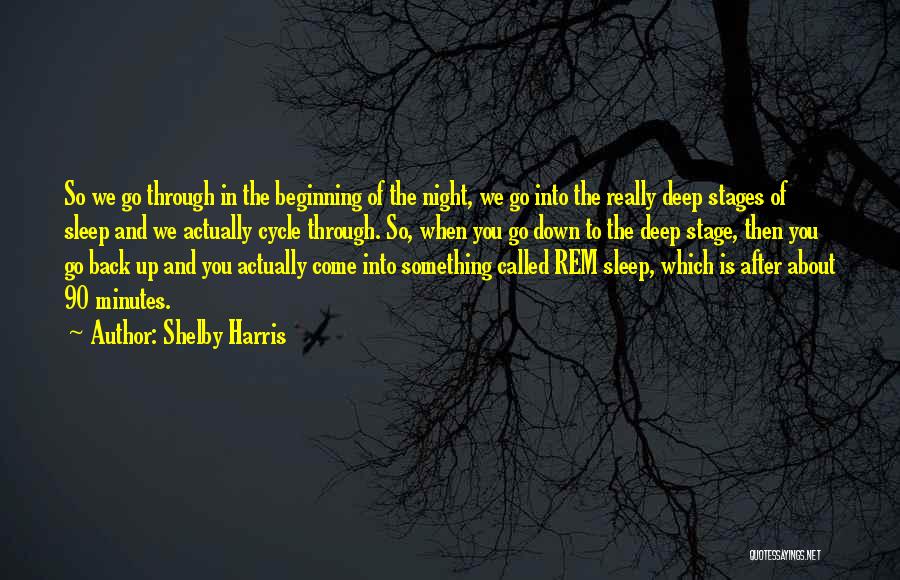
So we go through in the beginning of the night, we go into the really deep stages of sleep and we actually cycle through. So, when you go down to the deep stage, then you go back up and you actually come into something called REM sleep, which is after about 90 minutes. — Shelby Harris
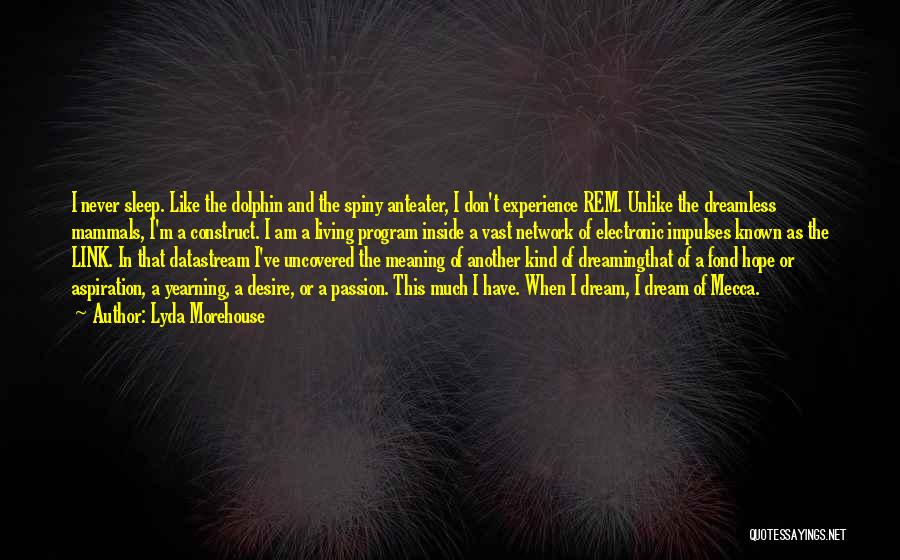
I never sleep. Like the dolphin and the spiny anteater, I don't experience REM. Unlike the dreamless mammals, I'm a construct. I am a living program inside a vast network of electronic impulses known as the LINK. In that datastream I've uncovered the meaning of another kind of dreaming
that of a fond hope or aspiration, a yearning, a desire, or a passion. This much I have. When I dream, I dream of Mecca. — Lyda Morehouse
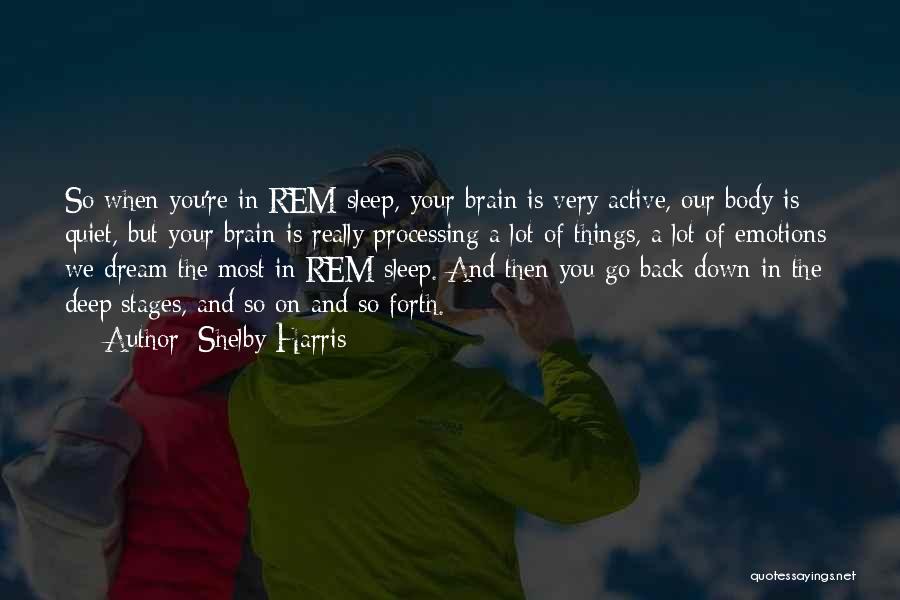
So when you're in REM sleep, your brain is very active, our body is quiet, but your brain is really processing a lot of things, a lot of emotions; we dream the most in REM sleep. And then you go back down in the deep stages, and so on and so forth. — Shelby Harris
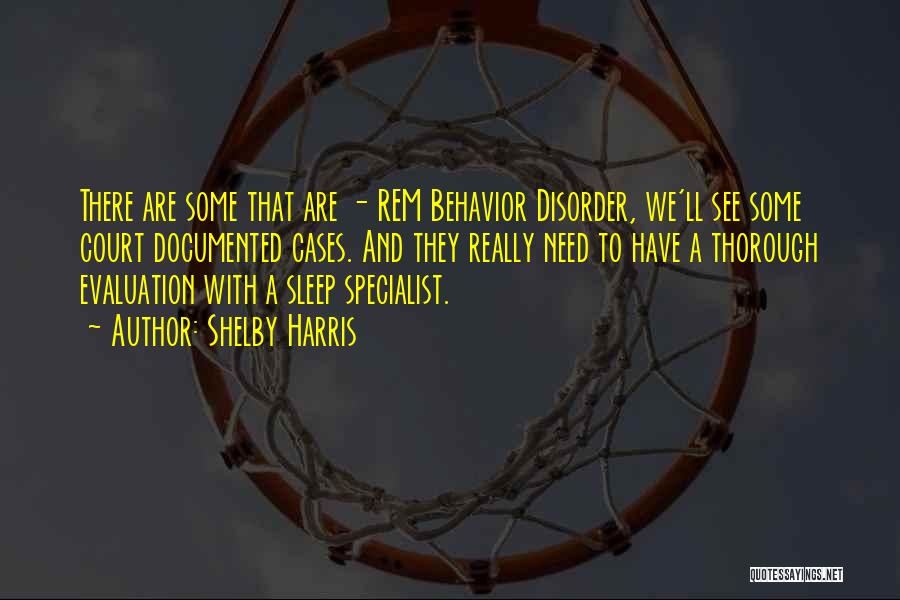
There are some that are - REM Behavior Disorder, we'll see some court documented cases. And they really need to have a thorough evaluation with a sleep specialist. — Shelby Harris
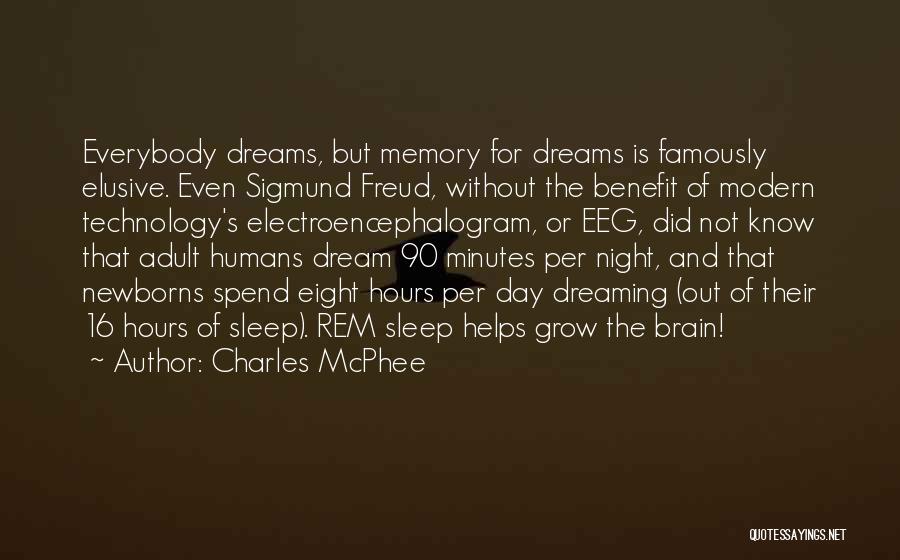
Everybody dreams, but memory for dreams is famously elusive. Even Sigmund Freud, without the benefit of modern technology's electroencephalogram, or EEG, did not know that adult humans dream 90 minutes per night, and that newborns spend eight hours per day dreaming (out of their 16 hours of sleep). REM sleep helps grow the brain! — Charles McPhee
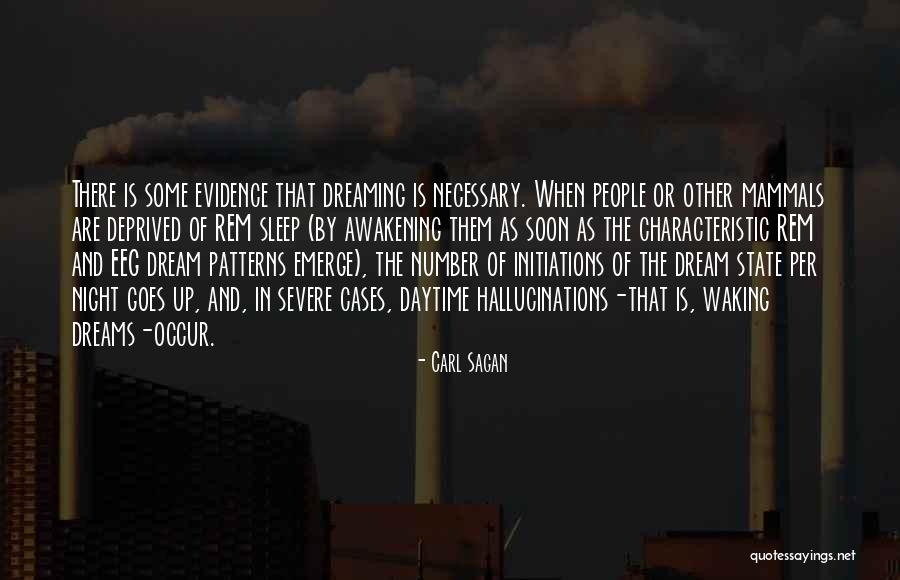
There is some evidence that dreaming is necessary. When people or other mammals are deprived of REM sleep (by awakening them as soon as the characteristic REM and EEG dream patterns emerge), the number of initiations of the dream state per night goes up, and, in severe cases, daytime hallucinations-that is, waking dreams-occur. — Carl Sagan
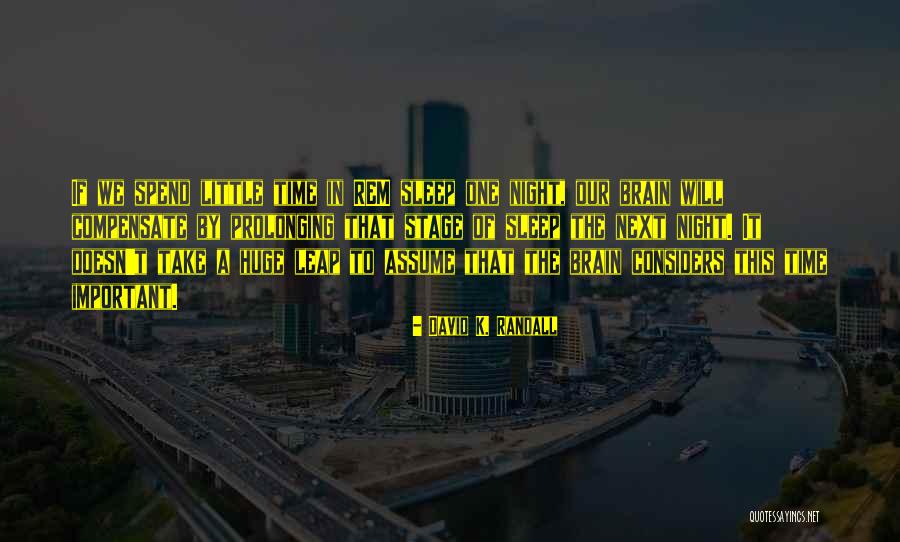
If we spend little time in REM sleep one night, our brain will compensate by prolonging that stage of sleep the next night. It doesn't take a huge leap to assume that the brain considers this time important. — David K. Randall
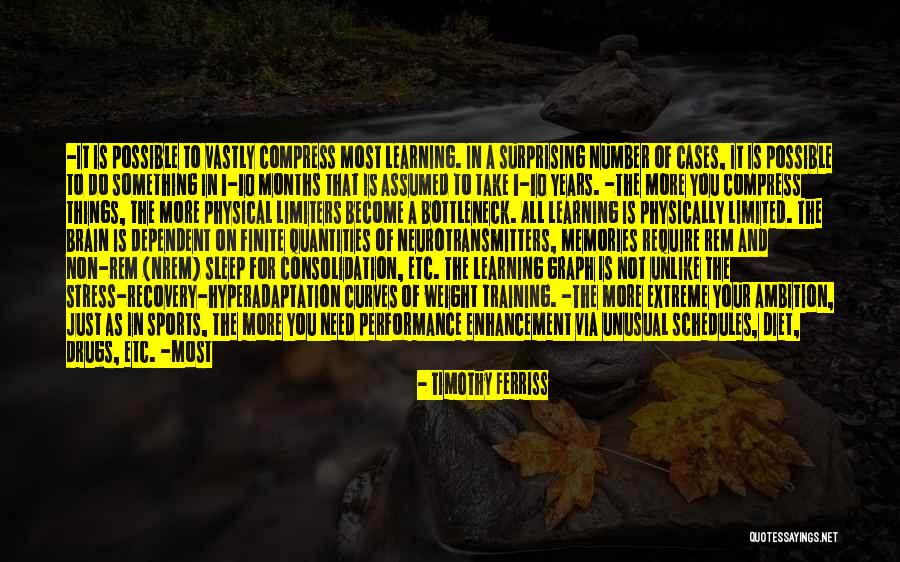
-It is possible to vastly compress most learning. In a surprising number of cases, it is possible to do something in 1-10 months that is assumed to take 1-10 years.
-The more you compress things, the more physical limiters become a bottleneck. All learning is physically limited. The brain is dependent on finite quantities of neurotransmitters, memories require REM and non-REM (NREM) sleep for consolidation, etc. The learning graph is not unlike the stress-recovery-hyperadaptation curves of weight training.
-The more extreme your ambition, just as in sports, the more you need performance enhancement via unusual schedules, diet, drugs, etc.
-Most important: due to the bipolar nature of the learning process, you can forecast setbacks. If you don't, you increase the likelihood of losing morale and quitting before the inflection point. — Timothy Ferriss
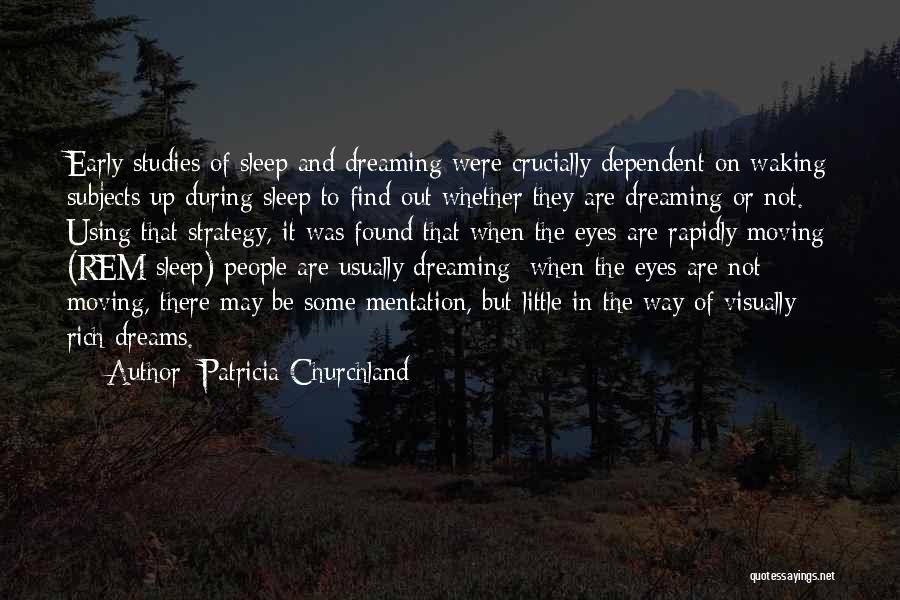
Early studies of sleep and dreaming were crucially dependent on waking subjects up during sleep to find out whether they are dreaming or not. Using that strategy, it was found that when the eyes are rapidly moving (REM sleep) people are usually dreaming; when the eyes are not moving, there may be some mentation, but little in the way of visually rich dreams. — Patricia Churchland
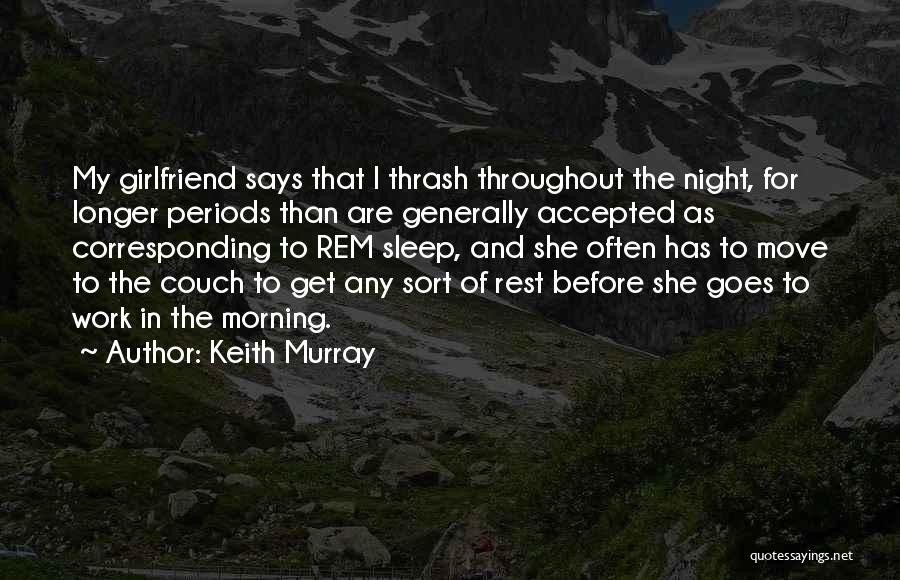
My girlfriend says that I thrash throughout the night, for longer periods than are generally accepted as corresponding to REM sleep, and she often has to move to the couch to get any sort of rest before she goes to work in the morning. — Keith Murray
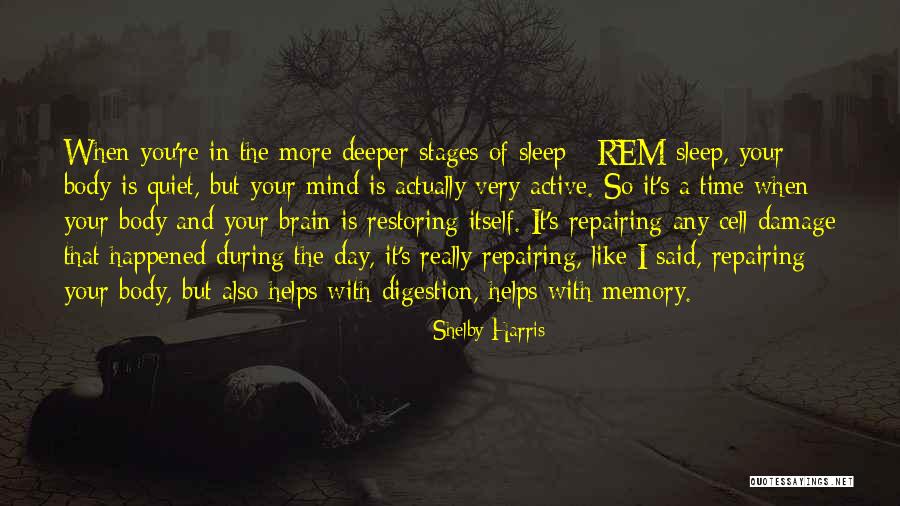
When you're in the more deeper stages of sleep - REM sleep, your body is quiet, but your mind is actually very active. So it's a time when your body and your brain is restoring itself. It's repairing any cell damage that happened during the day, it's really repairing, like I said, repairing your body, but also helps with digestion, helps with memory. — Shelby Harris
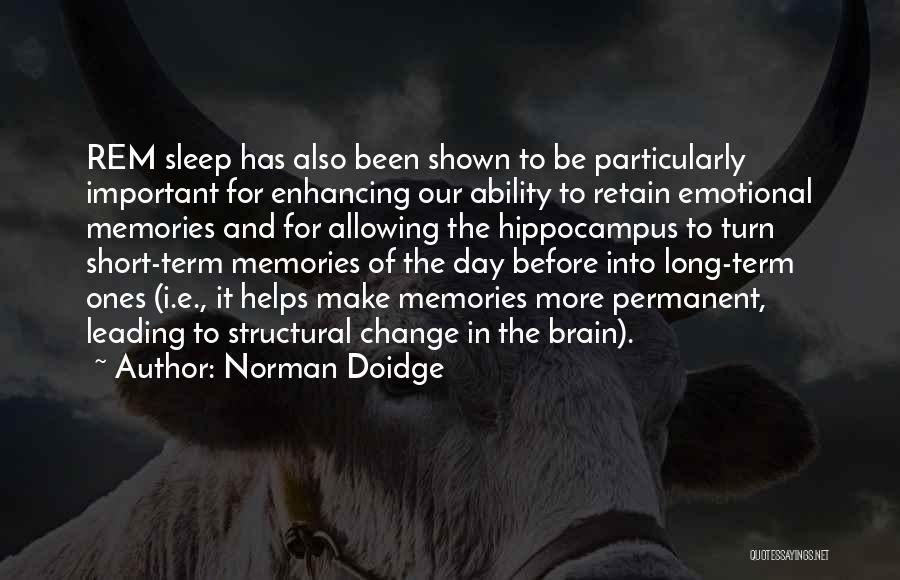
REM sleep has also been shown to be particularly important for enhancing our ability to retain emotional memories and for allowing the hippocampus to turn short-term memories of the day before into long-term ones (i.e., it helps make memories more permanent, leading to structural change in the brain). — Norman Doidge
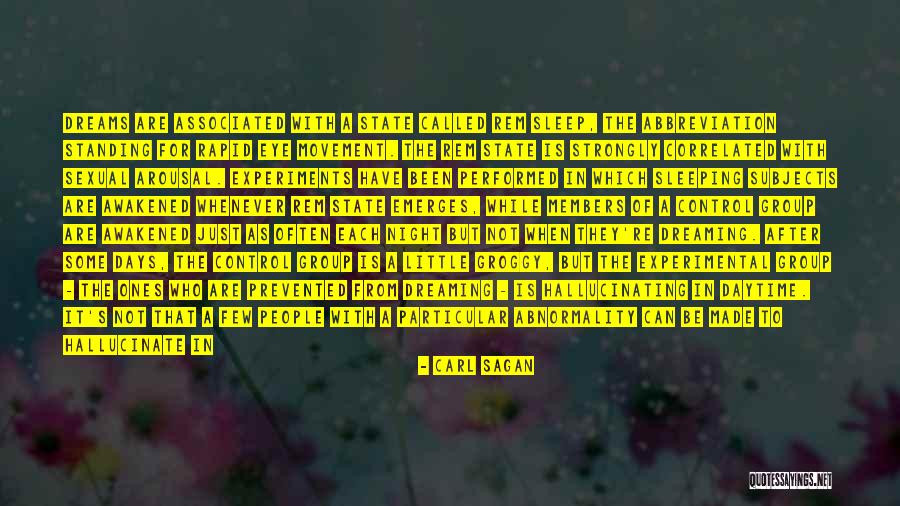
Dreams are associated with a state called REM sleep, the abbreviation standing for rapid eye movement. The REM state is strongly correlated with sexual arousal. Experiments have been performed in which sleeping subjects are awakened whenever REM state emerges, while members of a control group are awakened just as often each night but not when they're dreaming. After some days, the control group is a little groggy, but the experimental group - the ones who are prevented from dreaming - is hallucinating in daytime. It's not that a few people with a particular abnormality can be made to hallucinate in this way; anyone is capable of hallucinations. — Carl Sagan

Night terrors are very different from nightmares. A lot of people will think they're the same, but they're really not. Night terrors - you want to look at the time of night when you're having the problem. Night Terrors happen in deep sleep. Nightmares tend to happen in a lighter REM sleep. — Shelby Harris
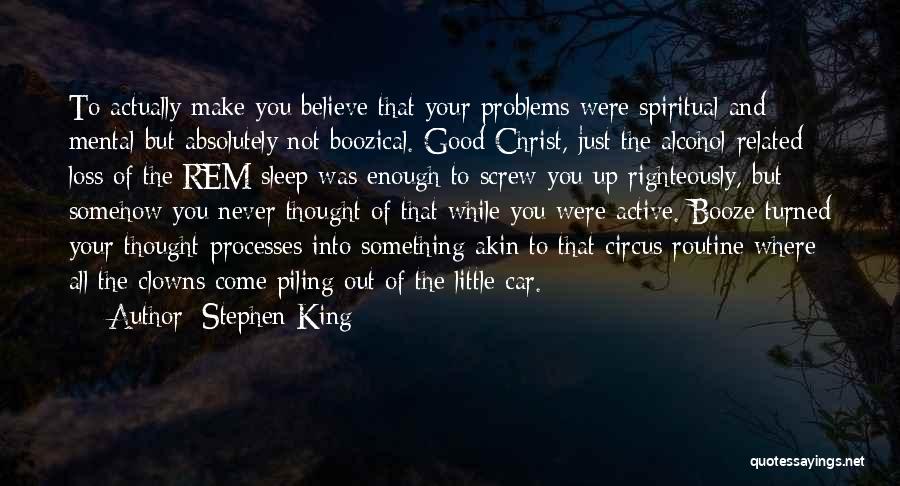
To actually make you believe that your problems were spiritual and mental but absolutely not boozical. Good Christ, just the alcohol-related loss of the REM sleep was enough to screw you up righteously, but somehow you never thought of that while you were active. Booze turned your thought-processes into something akin to that circus routine where all the clowns come piling out of the little car. — Stephen King






